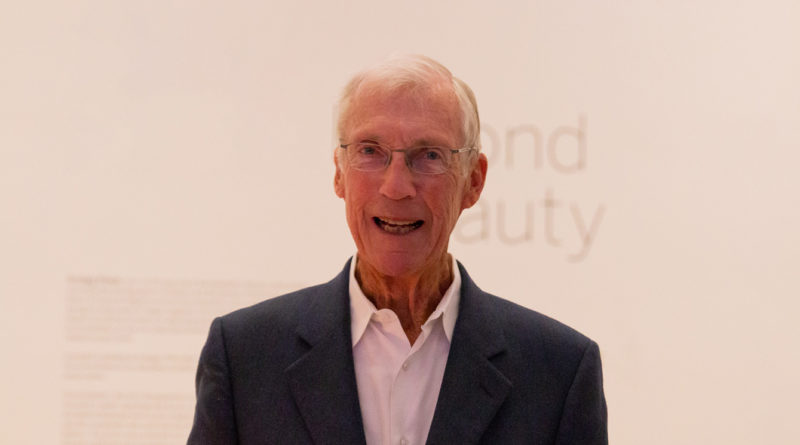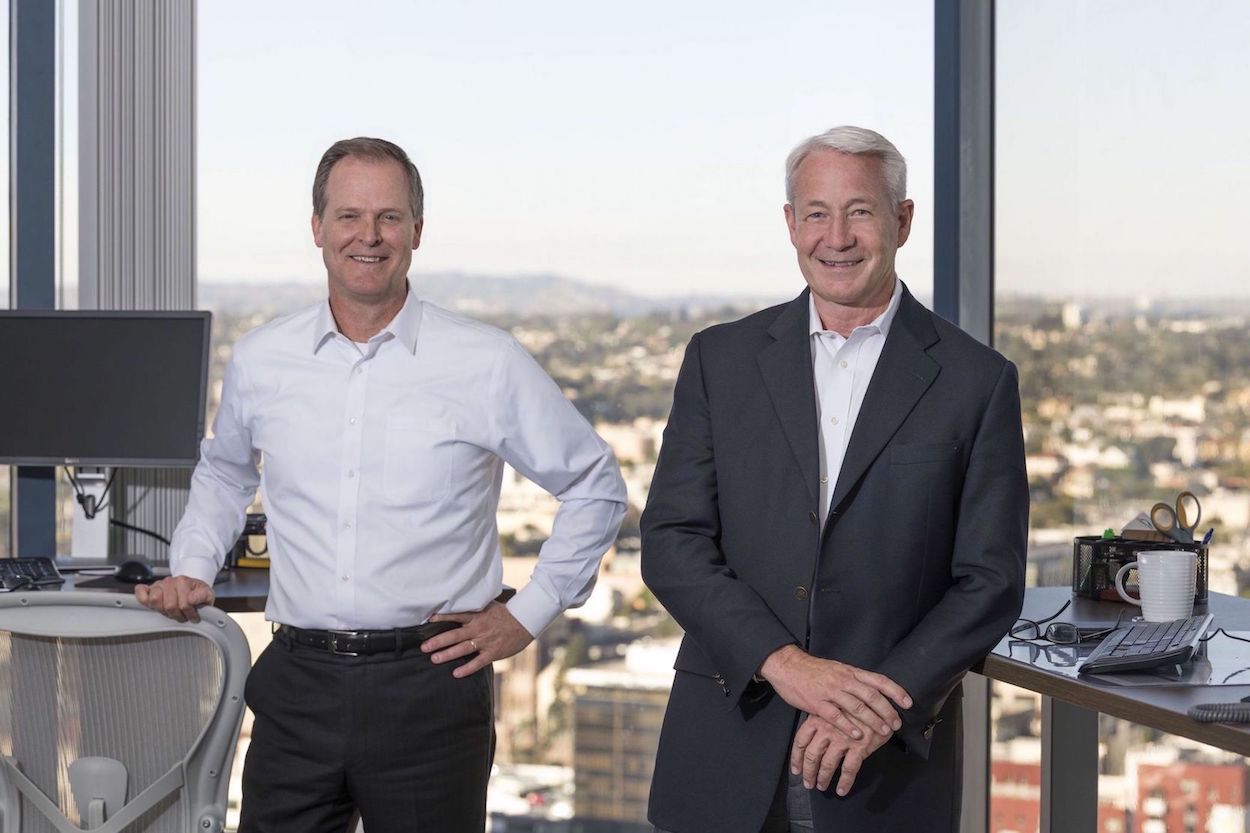Buzz Woolley’s San Diego Legacy
A Champion Behind the Scenes
Voice of San Diego co-founder, entrepreneur and venture capitalist Buzz Woolley shuns the spotlight in pursuit of government and education reform
By Marsha Sutton
For someone who’s had such a major influence on local government and education reform, Buzz Woolley is unusually unpretentious.
“Getting personally known is not something that I need, especially at this age,” said the 83-year-old entrepreneur and venture capitalist.
“I’d rather be known for the things I’ve helped start … things to help the community.”
Behind the scenes is where he likes to be: investing in projects, entities and causes he believes will help make a better society.
Ralph “Buzz” Woolley was born in Pennsylvania, attended high school in Phoenix, and graduated from Claremont Men’s College – now Claremont McKenna – in 1959, with undergraduate degrees in economics and political science.
He lives in La Jolla and has a second home in Sun Valley, Idaho. He has two children and six grandchildren.
Still physically active, Woolley is an avid skier, plays tennis regularly, hikes and bikes.
“My claim to fame I jokingly say is that my greatest athletic endeavors have been the fact that my body has still allowed me to do things like play tennis and ski at this age,” he said. “The really good athletes are on walkers.
“I’m not saying the skill level is great, [but] being the more average athlete, I’ve had longevity. It’s all relative to the age.”
After college, he worked at IBM for a time, and that was his last “real” job.
“I’ve had a long business career not working for other people,” he said.
Woolley started his independent career in venture capital in the 1980s when it was still relatively new, investing in start-up enterprises, mostly offering new technology.
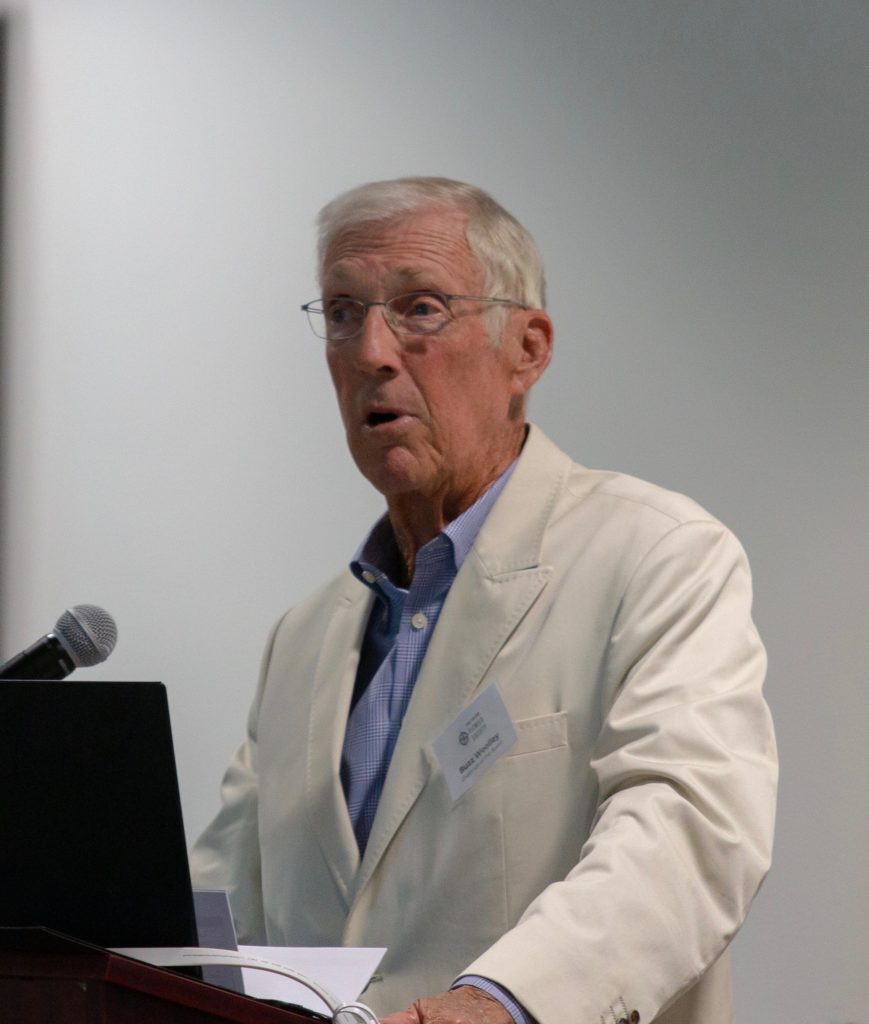
Venture capitalists provided more than just cash, also offering management help for early-stage companies, he said.
After enjoying financial success with his Girard Capital firm, his interests broadened.
“One of the significant organizations in San Diego that I was a founding member of, is Connect,” said Woolley, who established the nonprofit together with Mary Walshok, dean of University Extension and associate vice chancellor for public programs at University of California San Diego.
In connection with UCSD, Connect was created in 1985 as one of the nation’s first organizations to serve entrepreneurs and start-ups from early stage through growth, by offering resources such as mentorship, education and capital to support innovation and increase prosperity in the San Diego region.
“Connect has absolutely made the community better,” Woolley said.
Woolley is an emeritus board member, and Walshok remains involved, currently serving on the executive committee of Connect’s board of directors.
Girard Foundation
In 1986 Woolley founded the Girard Foundation, a private family nonprofit that supports K-12 education programs and projects that can further opportunities primarily for underserved students.
Woolley is CEO of the Girard Foundation and has a seven-member board that includes Woolley, his two children, former state Sen. Dede Alpert and Mary Walshok.
The board meets regularly to review proposals that address the foundation’s mission to foster innovation and systemic change in K-12 education and improve student outcomes in San Diego County.
According to a 2018 IRS Form 990 filing, 45 charitable contributions were made that year from the Girard Foundation, totaling just over $1 million. This is about five percent of the fair market value of the foundation’s assets, which exceed $20 million.
The grants ranged from a low of $1,000 to the two highest: $242,500 for Thrive Public Schools and $180,000 to the California Charter Schools Association.
Other major beneficiaries in 2018 included DonorsChoose.org, KIPP San Diego, Promises2Kids, Teach for America, Voice of San Diego and the YMCA.
Dede Alpert, Girard Foundation board member for the past decade, said they look for innovation in education.
“He does not like bureaucracies that he feels impede the ability to get things done and make positive change,” she said. “He is always asking what could actually make a difference.”
Over the years since charter schools came along, Woolley has supported the movement for the innovations and independence these schools can offer.
The objective of charter schools, he said, is to provide choice for parents, but also to experiment with different strategies.
“We’re really into trying new approaches,” he said. “The first charter schools … nobody had ever run something like that. Talk about adventurous.”
“The charter schools we have supported are the ones that are trying to do things for poor kids,” Alpert said. “We gave $300,000 early on to Gompers Charter School when it was just starting, for example.”
Girard and Woolley have helped various San Diego charter schools over the years, notably Gompers in Southeast San Diego, but his grants have not been limited to charters.
“We’ve given out about a million dollars a year in all kinds of different grants,” he said, mentioning a recent grant for a computer training program at UCSD for high school students called Program Your Future.
Recently, with the pandemic wreaking havoc on student learning, Girard has funded groups trying to address the learning gaps many students are experiencing.
Alpert said the Boys & Girls Club in Oceanside, for example, had about 90 kids coming there for remote learning so their parents could go to work, and the club needed more computers for the children.
And to provide computers and Internet access, small grants of $10,000 or $12,000 were given to schools whose students lacked needed technology for remote learning.
In addition to focusing on K-12 education, Alpert said the foundation is spreading out in both directions – younger and older.
People might think of Woolley as an establishment kind of person, she said, “but he’s got such a good heart. He picks things that he hopes will really make a difference for all kids.”
Voice of San Diego beginnings
Besides awarding grant money from his foundation, Woolley also personally donates money – made primarily from astute real estate and start-up investments – to causes not limited to K-12 education.
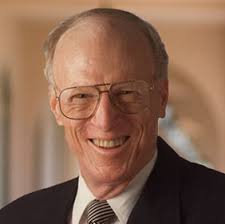
A foray into journalism was not on the top of his to-do list, but it became one of his significant interests when he joined forces with long-time San Diego journalist Neil Morgan in 2004 to start Voice of San Diego, the first online nonprofit newspaper in the country.
The catalyst came when the San Diego Union-Tribune fired Morgan, one of San Diego’s most well-respected journalists.
“He was a gentle man and he’d worked for them for decades,” Woolley said. “It was an absurdity to fire him.”
“I saw the Union-Tribune being a marginal, not the highest quality newspaper in the country,” he said. “They distorted things drastically. So it was not a good publication as far as giving a balanced view of what was going on.”
Woolley was disturbed that the Union-Tribune refused to write about troubling pension issues in the 1990s – because, he said, of U-T owner Helen Copley’s friendship with then-Mayor Susan Golding.
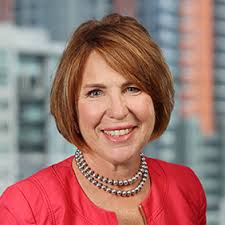
When a few writers tried to investigate the matter, the U-T started firing people, he said.
Woolley identified a community need for more in-depth investigative reporting and for another media outlet besides the U-T.
That, coupled with changing technology, gave him the idea for Voice of San Diego, even though he had little interest in journalism.
“I recognized that we could do this in a fairly economic way,” he said. “We didn’t have to raise $200 million to buy printing presses and try to compete with the old media.”
He met with Morgan and asked if he’d be interested in starting what he described as “an independent web-based news entity that did investigations and told it like it really was.”
A winning team
After Morgan and Woolley joined forces, Woolley sought reaction to the idea from prominent community members, and the feedback was universally positive.
He also analyzed the business side of existing online news platforms and learned that nearly all web-based news organizations were an off-shoot of print entities.
“It was sort of a side thought,” Woolley said. “They were just taking what was in print and putting it on the web. We couldn’t really look at the economics of it because nobody was cost-accounting it.”
Whether to run Voice as for-profit or nonprofit was the question.
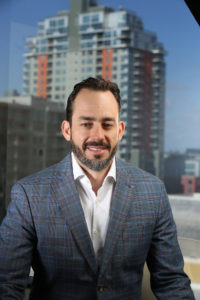
One national entity was for-profit, web-based only, but it suffered significant losses every year, he said. They discovered no nonprofit web-based media.
“Since nobody can make any money at it, why don’t we just … make it a nonprofit?” Woolley told Morgan at the time. “Then we can take in some advertising but we can get people to make tax-deductible donations.”
The Girard Foundation had experience helping set up nonprofits. “And Connect gave me some training in understanding how to found Voice of San Diego,” he said.
“We knew how to set up a nonprofit and knew something about managing it,” Woolley said. “And Neil’s enthusiasm for the idea and his reputation in town gave us the media credibility.”
It was a winning team – a combination of business expertise from Woolley and journalism experience from Morgan.
An amazing board
“The founding board of Voice of San Diego was an extraordinary board,” said Barbara Bry, Voice’s founding editor and first CEO, who ran unsuccessfully for San Diego mayor in the Nov. 3 election.
“We had a nationally known pollster, we had two of the best journalists in San Diego, and a woman who had started one of the top marketing firms in San Diego,” she said, speaking, respectively, of pollster and marketing research analyst Dan Yankelovich, Neil Morgan and Bob Witty, and Gail Stoorza-Gill.
While working at the Los Angeles Times, Bry met Woolley in 1983 and was later hired by Woolley and Walshok to be the associate director for Connect. She worked there for about 10 years, creating the structure and programming for the nonprofit.
In 2004 Woolley asked Bry to be the first editor and CEO of Voice of San Diego. She hired the staff, rented office space, created content management systems and oversaw the creation of the website which she called “clunky” in its first rendition.
Bry worked at Voice for under one year, getting the nonprofit off the ground. Within the space of just a few months, Voice of San Diego formally launched in early 2005.
Bry cited Woolley’s commitment to education reform, transparency and accountability, and applauded his “significant contributions to this city.”
Woolley identified two primary challenges in the beginning. One was financing and the other was credibility.
The credibility issue “was just something that we had to build,” he said. “It’s a gradual thing.”
Morgan’s association with Voice of San Diego as a board member and co-founder helped with that, by being “probably the most credible journalist in San Diego County,” Woolley said.
Every new enterprise faces hurdles, he said, “but we just plugged away at it. You’ve got to go into things with optimism and an energy.”
Woolley personally provided $300,000 in start-up funding, but did not intend to be the major supporter after that initial phase.
“I put up the money for the first year,” he said. “I said, let’s not ask other people for money for the first six months because we want to show them what it looks like.”
Giving money to journalism back then, he said, “wasn’t something people did. We said if the community doesn’t want to support this idea, then it’s not going to work. If at the end of the first year no one was willing to contribute, we would have just had to close it down.”
Voice today
Today, Voice of San Diego takes in about $2 million a year, with more than 3,000 members and donors, 22 foundations and numerous corporate sponsors.
Major donors listed on the Voice of San Diego website include Woolley at the $100,000 level, and Joan and Irwin Jacobs at the $50,000 to $100,000 level. About 30 more donations in the $5,000 to $50,000 range are also listed.
Qualcomm co-founder Irwin Jacobs was the first major donor besides Woolley to support the effort back in 2005.
But it was a gamble.
“I was taking a risk,” Jacobs said. “Would this catch on? Can they do the job they would like to do?
“After talking it over with [his wife] Joan, we decided to make a significant contribution to help them get started. It seemed like something worth trying to do.”
Jacobs knew Woolley from the early days of Connect and said he was a great admirer of Neil Morgan.
“The two of them together seemed like a team worth betting on,” he said.
Joan and Irwin Jacobs have continued to support Voice of San Diego every year since.
“I’m very pleased that I’ve been able to provide some level of support for them,” he said.
Besides contributing personally to Voice, Woolley – through his Girard Foundation – donates money specifically for education coverage. According to IRS data, $55,800 was given in 2018.
Woolley has remained the largest supporter of Voice over the years. “Between the Girard Foundation and myself, we’re probably about 15 percent of the total,” he said.
“I got it going financially,” he said. “But it would not be functioning like it is if the community had not jumped in and supported it.”
The average contribution, according to CEO and Editor-in-Chief Scott Lewis, is $181. As required for nonprofits, income generally equals expenses.
“Buzz is a brilliant investor and observer of markets and as such he can also see what the market is missing,” said Lewis, who was named co-editor in Nov. 2005 and later became editor-in-chief.
“In 2004, he recognized that the market wasn’t necessarily solving the need for local journalism,” he said. “And he saw this many years before most others did. He proposed a solution for San Diego – nonprofit, professionally staffed and mostly online – that became the model for hundreds of others across the country.”
A civic project
Voice of San Diego describes itself on the 2018 Form 990 IRS filing as an “online newspaper operated exclusively to educate and inform residents of San Diego County through in-depth investigative journalism about civic and regional issues so that residents can become advocates for good government and social progress.”
“People can say Voice has really done well,” Woolley said. “They’ve gone from $300,000 to $2 million. That’s not that big a deal. They helped start a national movement of nonprofit news. Well, that’s a pretty good deal.
“But if you live in San Diego, the investigations that Voice has done, how it’s changed things, is significant. It’s getting recognized more and more, but it’s taken 15 years to get to where we are.”
Voice is about communication and education, he said. “It uses journalism, but Voice is really a civic project.”
The media is the way we communicate and educate, he said. “It’s an aspect of education. Education is not something that you stop at 22 years old. More people are recognizing that education is a lifelong thing.”
When asked if Morgan, who died in 2014, would be proud, Woolley said he was a phenomenal journalist with a stellar reputation. But Morgan’s real legacy, Woolley said, will be the impact he had on Voice of San Diego.
National interest
Woolley said he’s not as surprised by the success of Voice as he is about the level of national interest in nonprofit web-based news entities that Voice generated.
After the New York Times wrote about Voice of San Diego in 2008, naming VOSD the first of its kind, the phone began to ring off the hook at Voice offices.
“We came up with the concept,” Woolley said, “and people started hearing about this around the country.”
The calls for advice became overwhelming.
“Most of the people who were calling us were journalists who wanted to start something and they didn’t know how to do it,” he said. “Spending an hour a week helping people would be one thing, but when it’s an hour or two a day it’s getting to be absurd.”
As a result, Woolley created a proposal for a national trade association to support those interested in starting something similar to Voice.
“We raised a couple hundred thousand dollars to explore this idea,” he said. The Knight brothers from the Knight Foundation were key allies.
First established as the Investigative News Network, INN is now the Institute for Nonprofit News, with more than 250 nonprofit media organizations in North America.
Woolley was a founder but chose not to serve on the board. “I told them I’d be involved to get it going, but my interest was in San Diego,” he said.
INN’s mission is to strengthen and support independent news organizations that are nonprofit, nonpartisan and dedicated to public service. INN also seeks to advance public support for nonprofit news as a public trust.
A section called Startup Guide provides a template on how to establish a nonprofit news organization.
“When you ask if I’m surprised at something, I’m delightfully surprised at how well INN has done,” Woolley said.
A listener
Woolley, a registered Republican, now likes to refer to himself as a venture philanthropist rather than a venture capitalist.
“The biggest difference is that in venture philanthropy you’re not looking for a financial return,” he said. “Just sending some money to the community chest, that’s not really very adventurous.”
Woolley’s real name is Ralph, an old family name, he said. When he was young, he was given the nickname Buzz, which his father Ralph thought was better than calling him “junior.”
“I’m a relatively informal guy so I’ve been happy being Buzz,” he said.
Although some have described Woolley as challenging to work for, most colleagues praise him for his commitment to the causes that matter to him, his willingness to consider new ideas and his depth of business experience.
“He’s very much of a listener,” said Dede Alpert. “He’s not at all dictatorial. He’s always asking questions of people.”
She described him as even-keeled, calm and moderate. “Nothing fancy,” she said. “You never hear him yell or raise his voice.”
Woolley’s lifelong friend and business colleague Mary Walshok described Woolley as inquisitive, questioning the status quo, imaginative, demanding and outcome-focused.
“Buzz, now in his eighth decade of life, continues to be curious, creative and full of the energy and organizational savvy essential to seeding and growing innovative enterprises,” she said.
Woolley said he’d like to be remembered for his philanthropic efforts in the San Diego community.
“By providing financial support as well as my management experience, I have helped start organizations that will outlive me,” he said.
“Providing help in the education and training of our youth, supporting the growth of the high tech community, and supplying quality investigative journalism has been my goal.”
Marsha Sutton is an award-winning local education writer and columnist and can be reached at suttonmarsha@gmail.com.
Personal note: As one of the original staff members of Voice of San Diego, hired by the talented Barbara Bry in 2004 to be the nonprofit’s first education writer, I remember what a privilege it was to be associated with such an astonishing group of professionals on Voice of San Diego’s first board of directors. It was an honor to be guided by the incomparable Neil Morgan, Bob Witty, Gail Stooza-Gill, Barbara Bry and of course Buzz Woolley.

